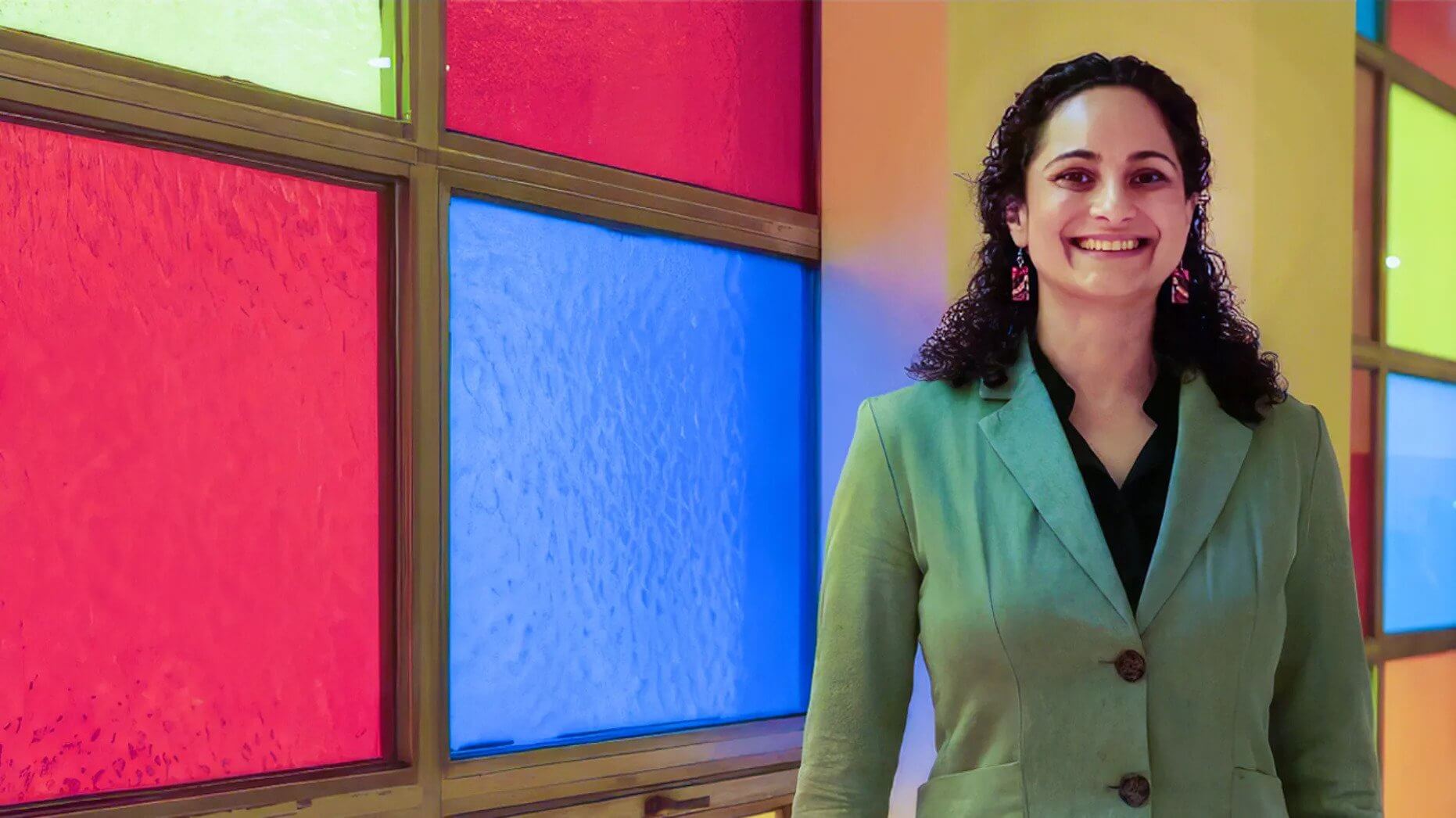Sam Woll believed in Muslim-Jewish partnership. She’d hate how quickly fingers were pointed after her murder
In the middle of mourning her death, we are forced to deal with racist, baseless accusations

Graphic by Angelie Zaslavsky
On Monday, as I watched the Detroit Police Department announce that the murder of my friend and colleague Sam Woll z”l did not appear to be an antisemitic hate crime, I let out a breath I’d been holding for days.
Like many in Detroit, I’ve been mourning and thinking about my many years of relationship with Sam. I met her on my first visit to Detroit in 2013, as I was considering moving here. Friends encouraged me to go the Downtown Synagogue for Friday night, to see the vibrant, progressive, young adult Jewish life I might be a part of. Sam led a beautiful and explicitly feminist service — she was one of the first people that made me appreciate how special the Jewish community in and around downtown is.
Sam meant so much to her loved ones and to her community here in Detroit. And as we mourn her, it is painful to see how some people are using speculations about her death to fuel a baseless, racist and harmful story that points a finger at Detroit’s large Palestinian population with suspicion of violence against our Jewish community.
These speculations are leaving our Jewish community even more fearful, and risk isolating us from others at a time when we need each other the most. The eyes of the world are on Detroit right now, and while Sam’s life and her work is worthy of every spotlight, her story has sadly been amplified mainly because of fear: fear that her death is part of a larger narrative about violence against Jews and Palestinians in America, particularly during the Israel-Hamas war.
No matter what was going on in the world, Sam was committed to strengthening bonds of community, understanding and solidarity across lines of difference, particularly with our Muslim, Arab, and Palestinian neighbors here in Detroit. I can’t know for sure what Sam would say if she were still with us today. But everything I know about her tells me that she would have absolutely hated the idea that someone would vilify an entire community for the kind of crime that hurts our humanity, no matter who we are.
We now know that the Detroit police do not believe Sam was targeted because she was Jewish. And while I understand why many of us initially feared this, it was disheartening to see some people — from within the Jewish community and without — rush to an assumption that condemned some of our neighbors based on their religion or race. It’s a reminder that, even when we are afraid and in pain — or perhaps especially when we are — we have to refuse the impulse to isolate ourselves.
When we allow wedges to be driven between us and our neighbors, we are all left less safe, less supported, and less able to draw from the deep well of support and solidarity that Sam was so committed to building.
Out of the hundreds of emails we exchanged, one jumped out at me: Sam was planning a Muslim-Jewish interfaith Seder and she needed help framing the dietary restrictions in a way that would feel welcoming. That request really epitomized her: always thoughtful, always building welcoming and diverse communities, always acting from profound solidarity.
I wish the world could see the incredible outpouring of support Sam and our Jewish community have received, especially from our neighbors here in Detroit. Muslim and Palestinian community leaders have sent messages of heartbreak and support, and shared that they are reciting duas — powerful prayers of supplication and worship — for Sam and her family. Her funeral on Oct. 22 was attended by people from all walks of life from our Detroit community, reflecting the depth and breadth of Sam’s relationships across many lines of difference.
In her heartrending eulogy, Sam’s sister called out, in Hebrew and English: “What have you done? Your brother’s blood cries out to me from the ground!” This verse from Genesis resonated like an earthquake in my soul — both because of her anguish, and because of ancient wisdom in the text. In this tale from Torah of the first murder — Abel, by his brother Cain — the word for “blood” used here is actually plural (“damei” vs. “dam”). That plurality rings even more true in this moment, because Sam was so deeply tied to so many communities, in particular Jewish and Muslim, and so many will mourn her loss.
When I returned home from Sam’s funeral, my 5-year-old child asked me why I was crying. “Because I miss my friend,” I said.
“Why did she go away?” they asked.
“I don’t know,” I replied.
And that’s the truth: I don’t know why Sam is no longer alive. None of us do yet. So for now, the most important thing we can do is remember Sam and refuse to let anyone use this tragedy as an opportunity to exploit our differences.
Zichrona livracha — may her memory be a blessing.
To contact the author, email [email protected].















